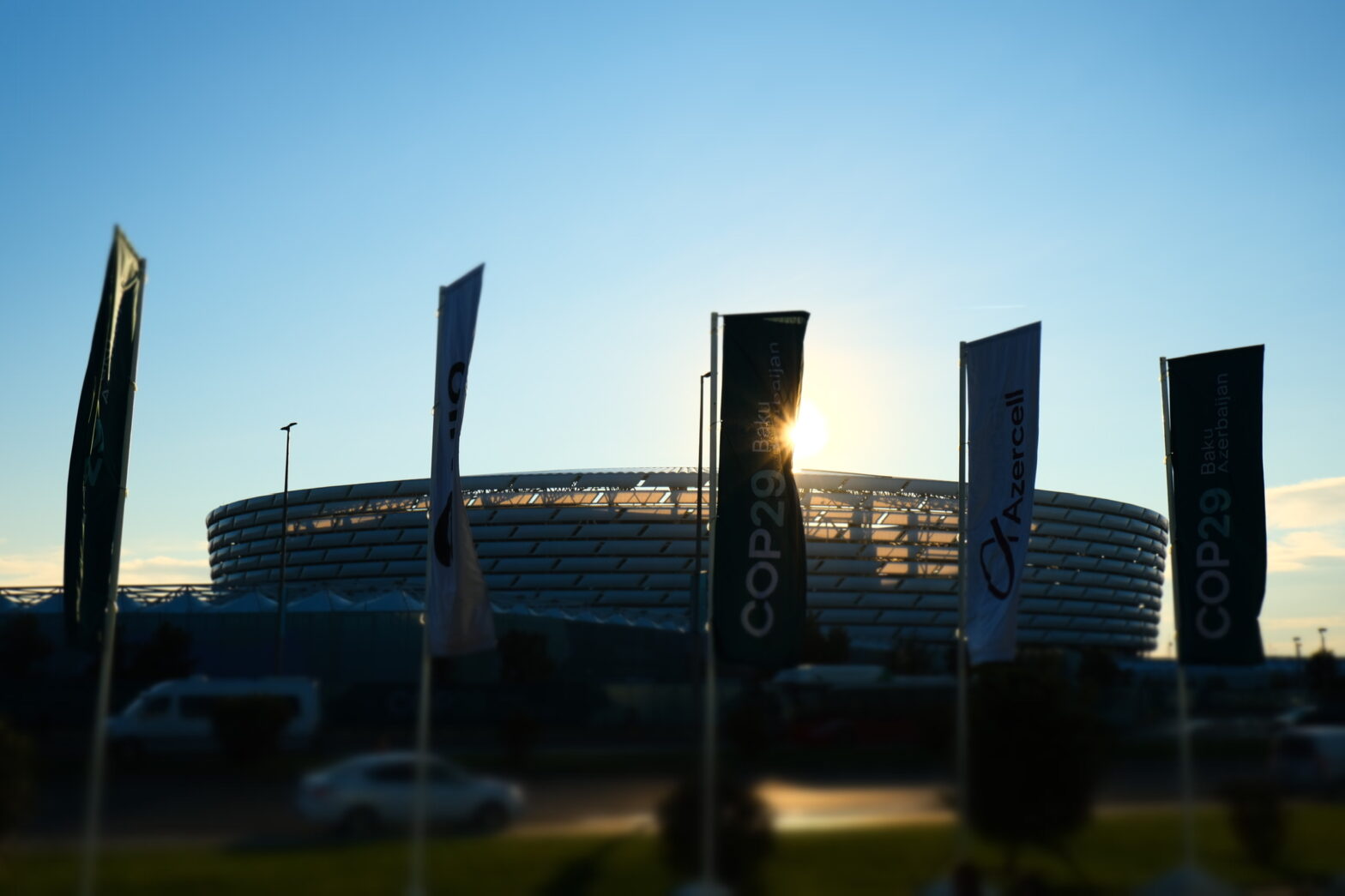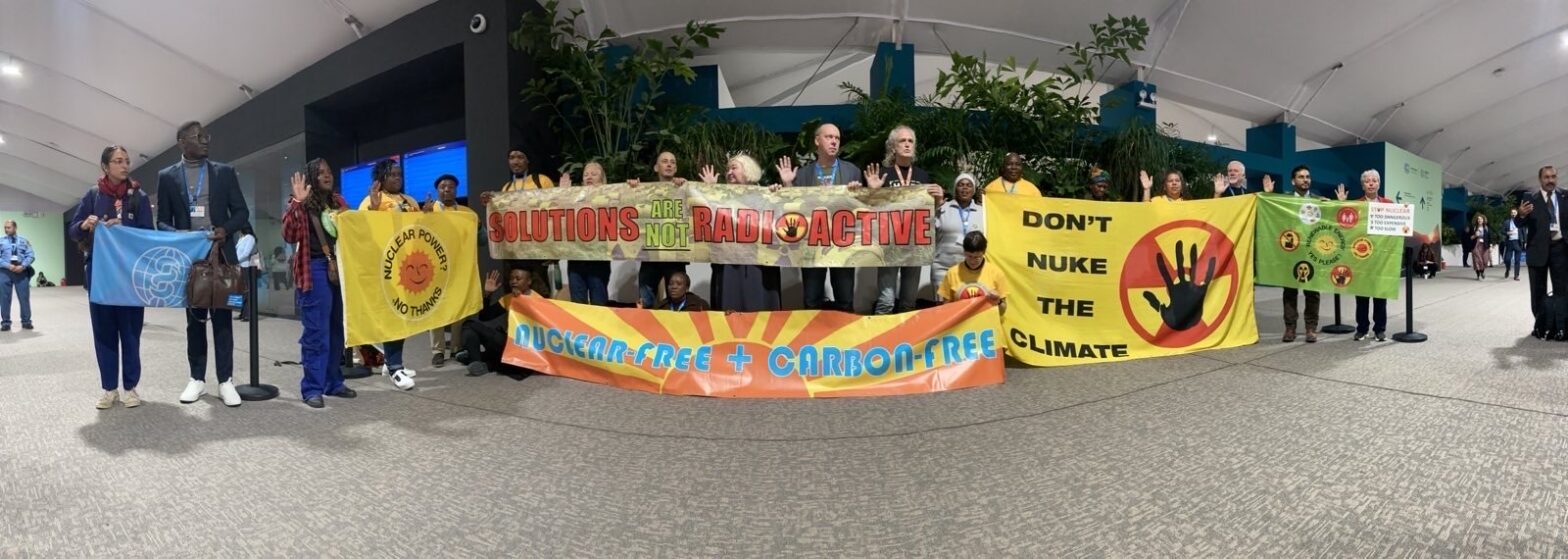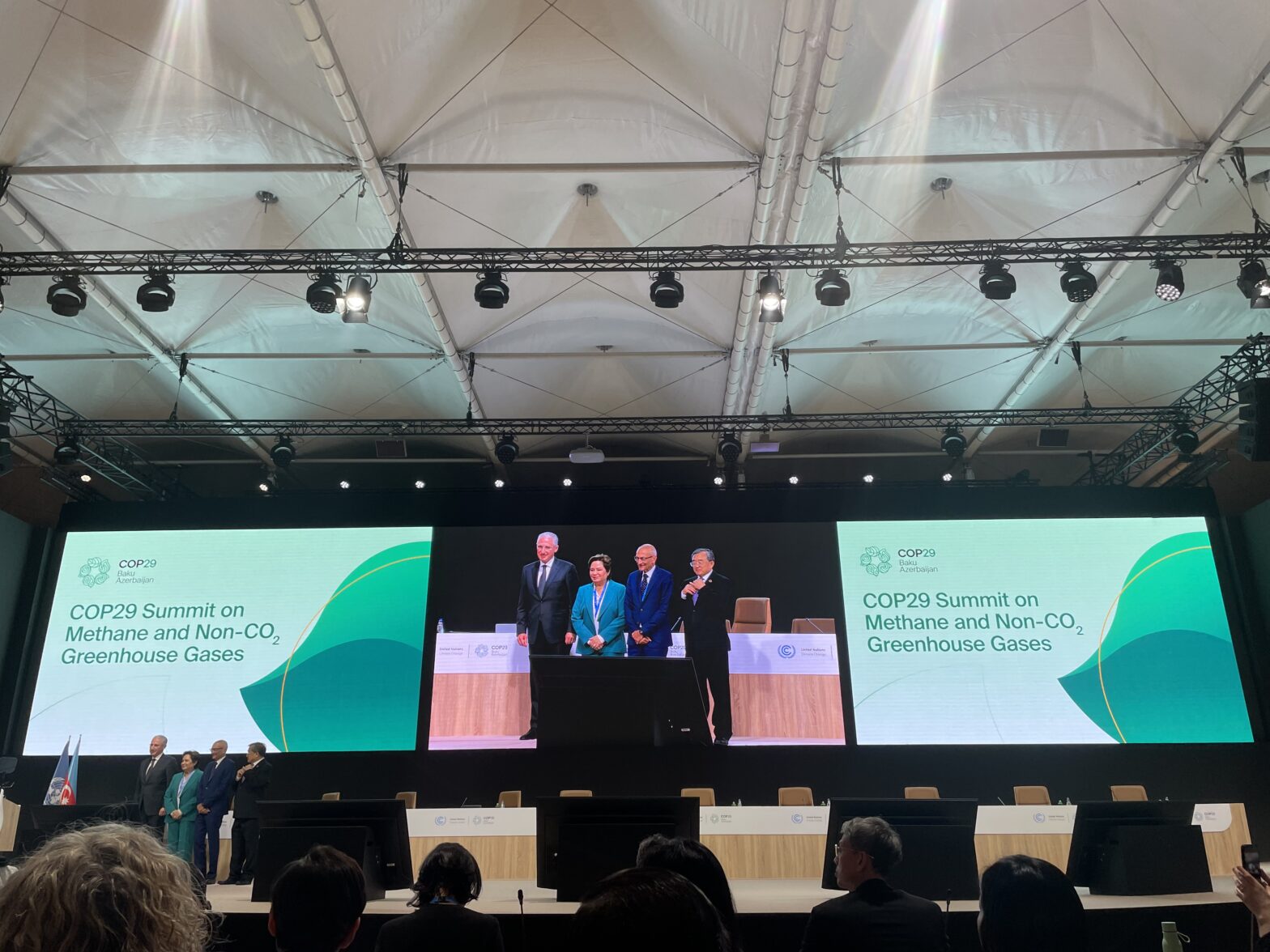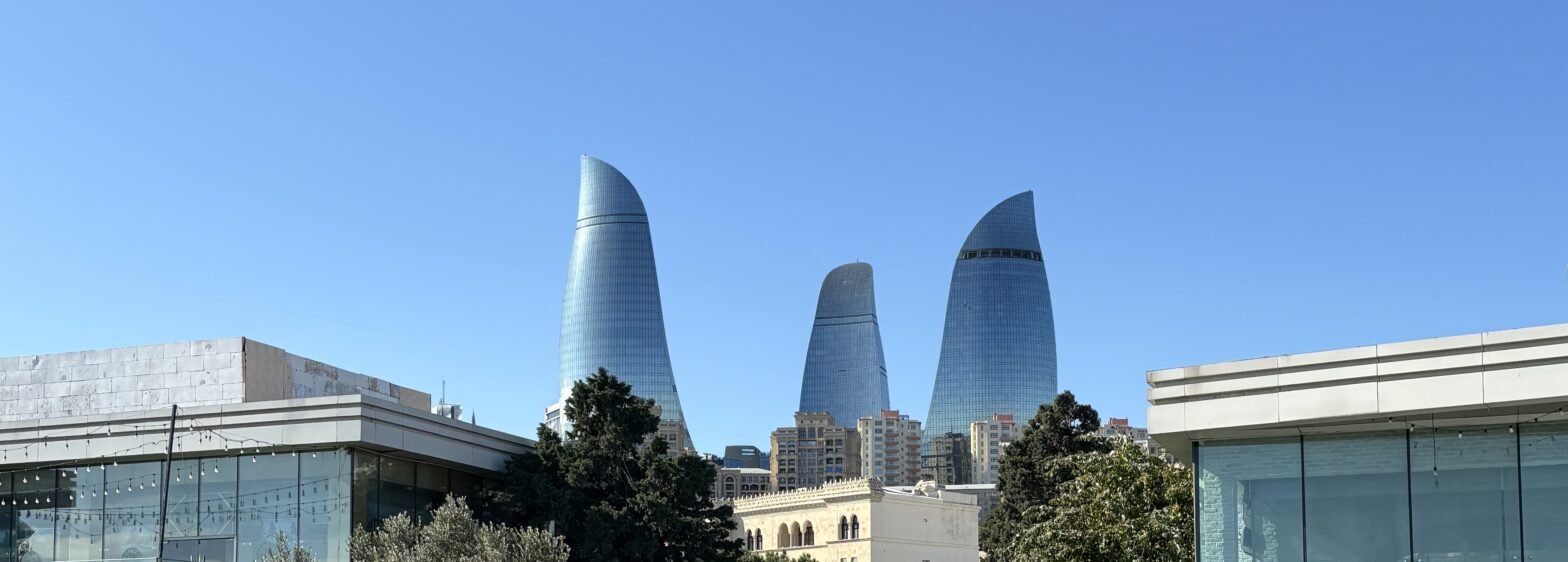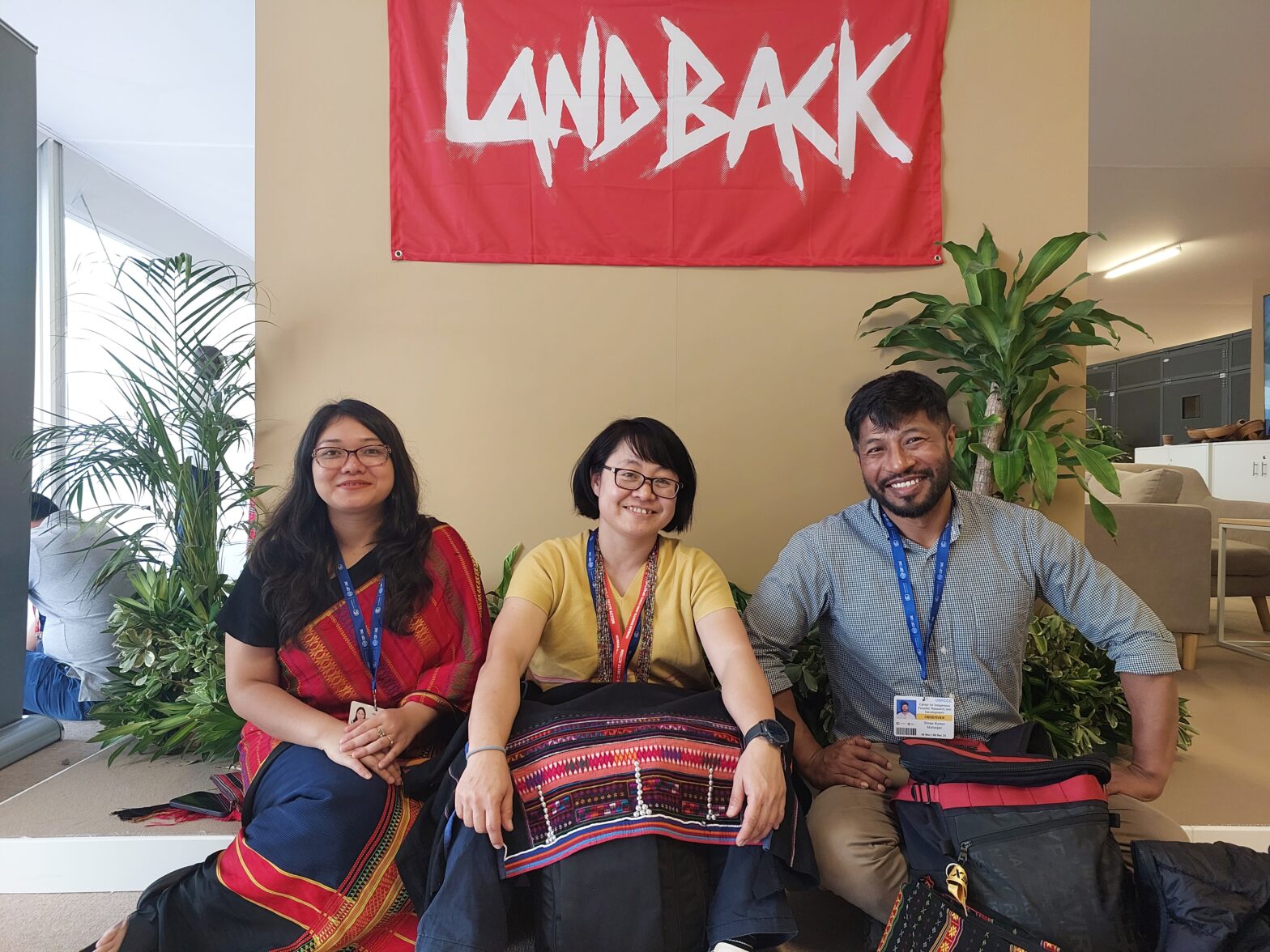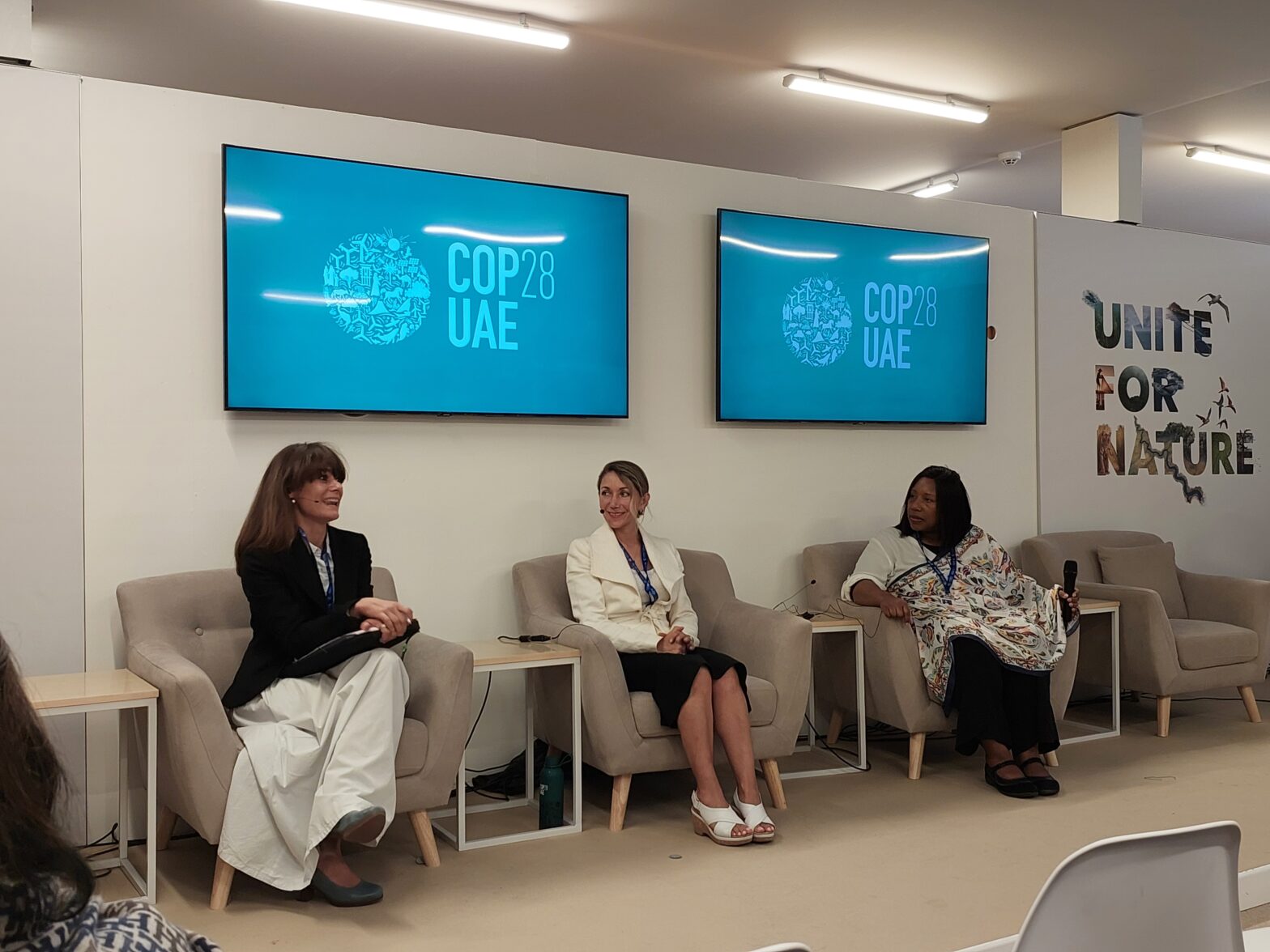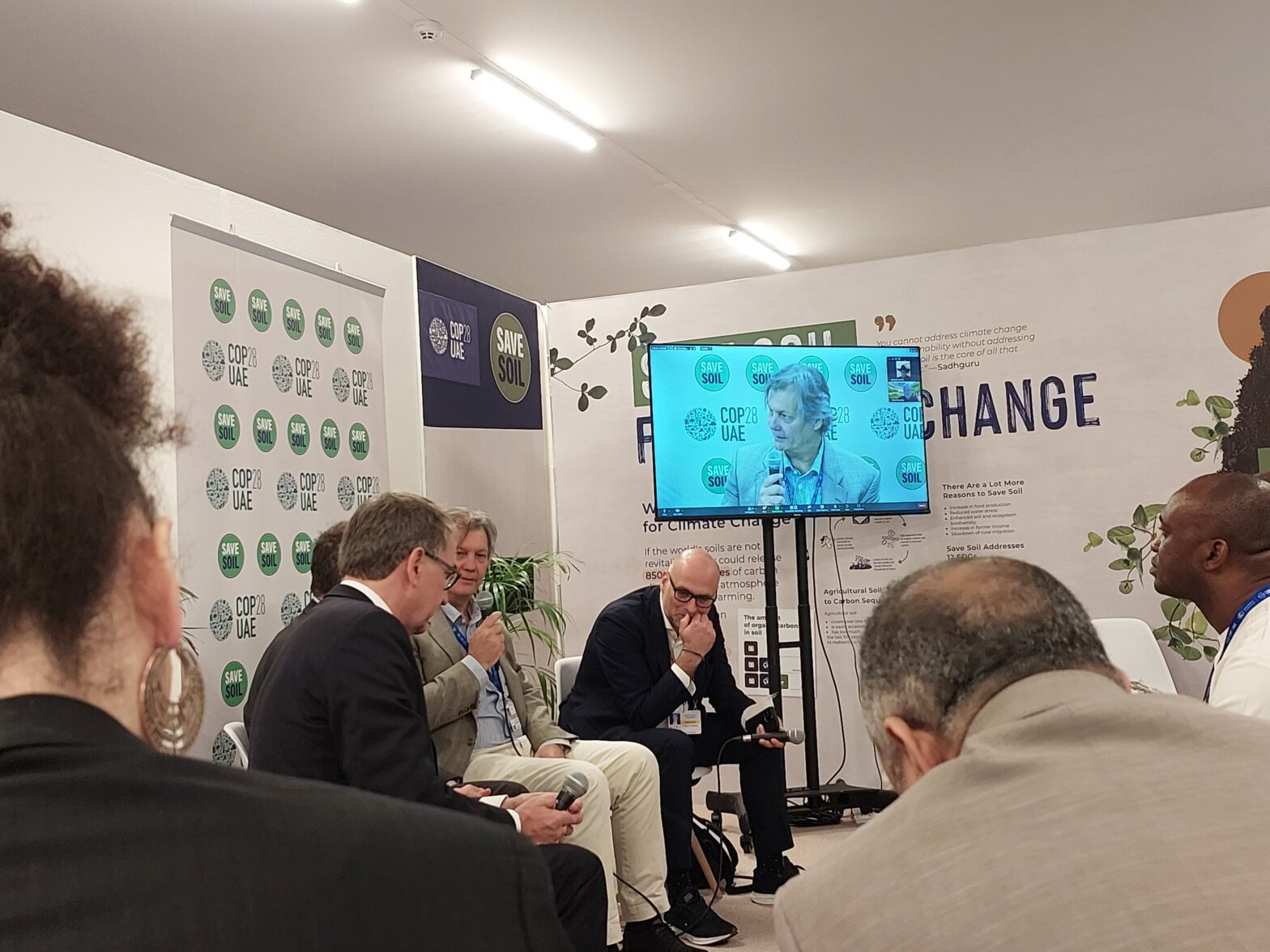By Ella Reese-Clauson ’26, International Political Economy | In this longer essay-format post, follow along on the path of my hope at COP29, starting first with some of the more encouraging sessions I went to before digging into the fissures that made that faith vanish. I will bring the reader with me as I witness firsthand some of the conference’s many failures but also highlight a few successes that leave me feeling a sense of faith, no longer in the UNFCCC and its institutions but in the people that make COPs run.
Tag Archives: #CC
Bananas, Smiles, and Atomic Bombs: Attitudes toward Nuclear Energy at COP29
By Ella Reese-Clauson ’26, International Political Economy |
On the first Friday of COP29, I entered the generally professional and sterile Blue Zone to the sight of a small line of business-clad delegates waiting to have their picture taken with a pair of attendees dressed in inflatable polar bear suits. One after another, the delegates excitedly posed with the polar bears, complying obediently when the photographer told them to “say cheese for nuclear energy.” One of the bears’ peers—dressed in a bright blue T-Shirt plastered with pro-nuclear energy slogans—handed out bananas, smiling as he professed that living next to a nuclear power plant for a one year period exposed you to the same amount of radiation as a single banana. His thesis? If we’re not scared of bananas, we shouldn’t be afraid of nuclear energy. The man, a nuclear engineer from the UK, passed me a bruising brown banana that was perhaps not the happy, healthy image he was going for. When I asked him where I could find this report, he told me to look on the website of any power plant. Clearly, their sources were unbiased.
A Tense Saturday for the US Delegation at COP29
By Ashley Entwistle, ’26, History-Political Science As delegates from around the world gather in Baku to discuss the future of our climate, the results of the US election have left the US delegation divided on how to represent the nation’s climate future. The question of whether the US can remain a reliable international partner on …
Continue reading “A Tense Saturday for the US Delegation at COP29”
The “Low Hanging Fruit” of Reduction – COP29 Summit on Methane and Non-CO2 Greenhouse Gases
By Megan O’Brien, ’25, Environmental Studies and Havalin Haskell, ’26, Environmental Studies First speakers from hosting countries (From left to right: Mukhtar Babayev, Patricia Espinosa, John Podesta, and Liu Zhenmin) at COP29 Summit on Methane and Non-CO2 Greenhouse Gases. When we caught wind of the possibility of garnering tickets to attend the High-Level Summit …
Indigenous Climate Leadership Day in the Shadows of the World Leaders Action Summit
Ashley Entwistle, ’26, History-Political Science Paul Irngaut (Vice-President, Nunavut Tunngavik Inc) delivering his keynote speech on Tuesday, November 12. The two-day World Leaders Action Summit commenced on the first Tuesday of COP29, where the President of the Republic of Azerbaijan invited heads of state and governments to engage in bilateral meetings, high-level roundtable discussions, and special …
First Impressions in Baku: Ethnic Cleansing, Oil Wealth, and Climate Reckoning at COP29
By Ella Reese-Clauson, ’26, International Political Economy |
We entered the Baku airport at two in the morning local time after a nearly twenty-four hour travel day, amazed by the sloping, modern wooden arches of the terminal. Signs for COP29 in a now-familiar teal color lined the hallway. Our shuttle driver pointed out notable buildings as he maneuvered the still-crowded streets of Azerbaijan’s capital. The Baku Olympic Stadium, the venue hosting COP29, illuminated the skyline as we entered the city, its lighted exterior shining the blue, red, and green of the Azerbaijan flag. The famed flame towers—a trio of sleek, flame-shaped buildings that are three of the city’s many expensive skyscrapers built with new oil money—played a light show on repeat of the country’s waving flag.
Echoes of Resilience: Indigenous Voices from South and Southeast Asia at COP28
By Jasmine Sone At COP28, I had the opportunity to speak with three extraordinary people: Chandra Tripura, who advocates for the Tripura community in Bangladesh; Pirawan Wongnithisathaporn, who represents the Karen community in Thailand, specifically the Pga K’nyaw; and Shree Kumar Mahajan, who speaks for the Newar community in Nepal. Their stories brought to light …
Continue reading “Echoes of Resilience: Indigenous Voices from South and Southeast Asia at COP28”
What do we do Post-COP 28?: Dissemination and Climate Literacy
by Tristan Durocher ’25 We are now two days removed from COP 28, an exhausting summit extending an extra two days past the prescribed 12 days planned. Being on the other side, I’ve now had time to process, reflect, and understand that the responsibility of being a COP attendee doesn’t end when the plenary is …
Continue reading “What do we do Post-COP 28?: Dissemination and Climate Literacy”
Awakening Connections: Embracing the Rights of Nature
By Jasmine Sone Among all the discussions at COP28, the term “Rights of Nature” caught me off guard, a concept foreign to me until that point. My initial feeling was one of confusion. Why is it necessary to advocate for the Rights of Nature in a world where its intrinsic sacredness should be obvious? Defining …
Continue reading “Awakening Connections: Embracing the Rights of Nature”
Unearthing the Impact: Soil’s Crucial Role in Climate Change
By Jasmine Sone As I sit here contemplating the future of our food, a disturbing fact enters my mind: only roughly 60 harvests are left in our topsoil. That’s all. It takes 1,000 years to produce three centimeters of topsoil, and if the current degradation rate continues, it is projected that the world’s topsoil might …
Continue reading “Unearthing the Impact: Soil’s Crucial Role in Climate Change”
